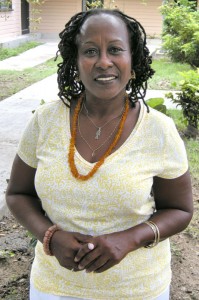
Opal Palmer Adisa, Editor of The Caribbean Writer, reflects on the moment Haiti became a part of life?
OPA: I could say when I was about ten years old, when I first heard that Haiti whipped the French army and gained their freedom, but truly it didn’t become a part of my consciousness until I was sixteen and read The Tragedy of King Christophe by Aimé Césaire.
After reading that play I researched and found out more details about Haiti that made me feel proud, like I had been taught by my parents to feel proud of the Maroons and Granny Nanny of Jamaica. Haiti became very large and real for me then. Since that time Haiti/Ayiti and its people have always held a special place in my heart and consciousness.
Even now, it is truly awesome to think about the sense of pride and determination that it must have taken for our enslaved ancestors in Ayiti to choose freedom and to fight ferociously to make it a reality for them in 1803. Such gallantry, such vision! And the impact it had on the rest of the Caribbean and world is still today evident.
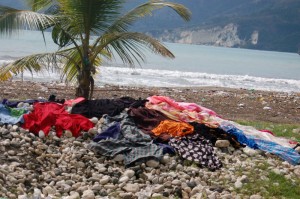
Katia: How has Haiti contributed to the person you are today?
OPA: Well, Haiti is a source – a symbol of pride. It has fortified me in innumerable ways, made me believe that I could do whatever I had to undertake because Haitians did, with so much more odds against them. Also, I feel protected towards Haiti because I truly believe that the plight of Haiti today is directly related to its brave stance 208 years ago. The West continues to “punish” Haiti for showing it up, for leading the way for the rest of the Caribbean and new world. Knowing the history of Haiti makes me brave, makes me work towards making changes that positively impact Caribbean people wherever I am. Haiti reminds me to never give up, that anything is possible.
Katia: If Haitian soil could speak, what do you think it would say?
OPA: Haitian soil has a lot to say; it says keep on keeping on; it says too much blood has been shed for it to be still so hard for so many of my people. It says don’t be so eager to welcome the West without clear guidelines; it says don’t forget how we worked together to achieve our freedom, and how we still need to work as a group to rid this poverty from our backs. The soil speaks incessantly, but we need to press our ears to it and listen and follow its advice. It says we have been maligned, we have been exploited, we have been tricked and lied to, our religion and culture have been insulted, but still we love each other and our children, still we take pride in how we look, still we continue to believe in a truth that is not evident to others. The soil says continue, we will yet dance under the light, our children will be educated and healthy and our homes will be safe and comfortable.
Katia: What were your first thoughts when you learned Haiti had had a massive quake?
OPA: Why Haiti, hasn’t Haitian suffered enough, had enough disasters in the last several decades? I was devastated for Haiti. My heart literally was gripped. I was overwhelmed. I asked: how much more suffering must this place and these people endure? In how many more ways must they show themselves resilient, able to over come adversaries and still emerge with their humanity in tack?
Katia: You were in Haiti recently. In what ways did you witness the resilience of Haitian people?
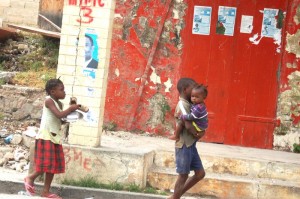
OPA: Everywhere, at every turn, truly. I was so amazed, so humbled by the people’s motivation, drive, ability to appear normal and calm under unstable conditions. I went to several camps and spoke to many people in the camps, especially women, and repeatedly their stories to keep their family together, how they were coping with the losses, their singular goal to provide for their children and ensure that they have a good education was moving, uplifting. The people were, for the most part, full of gratitude for the little they have. Mostly, they seem to be able to see beyond the immediate, their eyes seem to be focused on a greater yet that they hope for and are willing to strive to make a reality.
Katia: Why did The Caribbean Writer decide to dedicate its 25th Anniversary issue entirely to Haiti?
OPA: For a journal such as The Caribbean Writer to have survived for 25 years is a feat. We are celebrating our 25th, silvery anniversary and it just seems fitting and appropriate that Haiti, the symbol and living testimony of survival be apart of that celebration. After all Haiti is the precursor, without Haiti’s giant leap, perhaps the journal would never have been. The Caribbean Writer, like Haiti, is striving to create a new future and home for writers, and Haiti is striving to be the land of green mountains for all its people; both are determined to be free and freeing.
Katia: What is the one message you would like readers of this great anthology to take away with them?
OPA: How prolific and diverse we are, what great storytellers and writers we are; how much culture we have and continue to produce, how important our lives are and how imperative it is that we share our struggles, joys and triumphs with each other and the rest of the world – that solid literature is alive and well in the Caribbean. So Invite people to subscribe to The Caribbean Writer, to tell 5 friends about us, to befriend us on Facebook, and the spread the word. Visit us on the web: www.thecaribbeanwriter.org
Katia: It’s not a secret that people think Opal Palmer Adisa is “wise.” What wisdom do you have for Haitian girlchildren, in particular, who may not feel so resilient at times?
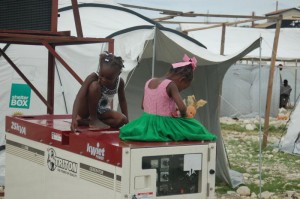 OPA: Take time for yourself, give yourself permission to take a break and seek the quiet and listen to your inner voice. It is okay to not always feel strong and resilient; give yourself permission to be weak and to ask for help, so you can regroup and move to the next level. Whenever I feel at the bottom of the heap, as if I cannot go on anymore, I think of my ancestors, those enslaved beings who did not even own their own bodies, and I say to myself, if they could see and dream beyond the sugar or cotton or tobacco fields, then this little thing that I am dealing with, I can overcome. I just need a moment to regroup then forge ahead. I think it is crucial that girlchildren know that they don’t have to be all things for everyone or available all the time, that they need to and should take time for themselves. Reprieve is essential, but also remembering your ancestors and what they had to endure to pave the way for you, that will give you strength; listen to them; learn from others and always, always keep your goals next to your heart. Dream big girlchildren, dream and walk towards your dream. Rest when you are tired, then get up and start again.
OPA: Take time for yourself, give yourself permission to take a break and seek the quiet and listen to your inner voice. It is okay to not always feel strong and resilient; give yourself permission to be weak and to ask for help, so you can regroup and move to the next level. Whenever I feel at the bottom of the heap, as if I cannot go on anymore, I think of my ancestors, those enslaved beings who did not even own their own bodies, and I say to myself, if they could see and dream beyond the sugar or cotton or tobacco fields, then this little thing that I am dealing with, I can overcome. I just need a moment to regroup then forge ahead. I think it is crucial that girlchildren know that they don’t have to be all things for everyone or available all the time, that they need to and should take time for themselves. Reprieve is essential, but also remembering your ancestors and what they had to endure to pave the way for you, that will give you strength; listen to them; learn from others and always, always keep your goals next to your heart. Dream big girlchildren, dream and walk towards your dream. Rest when you are tired, then get up and start again.
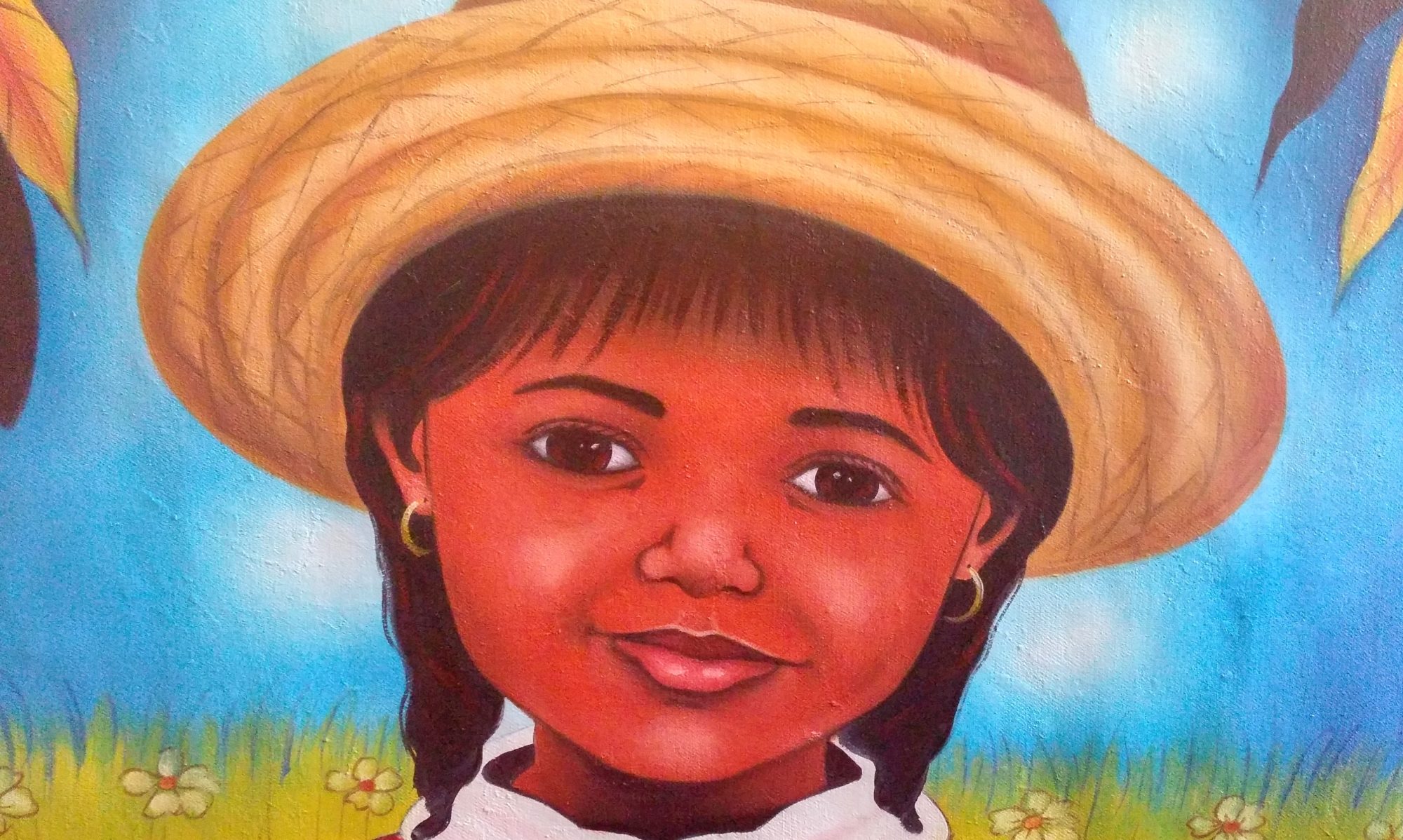
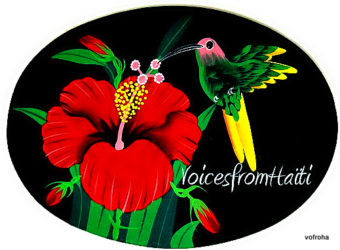
Thanks Katia for a very revealing interview with our sister Opal Palmer Adisa. I don’t know where she gets the energy and strength to do all that she does. She’s everywhere and she’s done soo much and she knows so much too.
And she has Ph.Ds too! I wish I could buy the works from the Caribbean Writers, I will do so as soon as the tide turns in my favor.
Jah love.